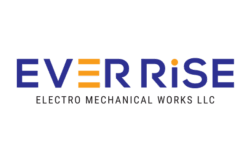
The Mechanical, Electrical, and Plumbing (MEP) sector is a cornerstone of the construction and infrastructure industry in the UAE. As the region continues to develop rapidly, staying abreast of the latest trends in MEP services is crucial for businesses aiming to stay competitive. Here are the top trends shaping MEP services in the UAE for 2024.
1. Sustainable and Green Building Practices
Sustainability is no longer just a buzzword; it’s a mandate. In 2024, there is an increased focus on green building practices and sustainable MEP solutions. This trend is driven by the UAE’s commitment to reducing its carbon footprint and promoting environmental sustainability. MEP service providers are integrating energy-efficient systems, such as high-efficiency HVAC systems, renewable energy sources, and advanced water conservation technologies, to comply with green building standards like LEED and Estidama.
2. Smart Building Technologies
The rise of smart buildings is revolutionizing the MEP landscape. IoT (Internet of Things) and advanced automation systems are being incorporated into MEP services to create intelligent and interconnected buildings. These technologies enable real-time monitoring and control of electrical, mechanical, and plumbing systems, leading to enhanced operational efficiency, reduced energy consumption, and improved occupant comfort. Smart sensors, predictive maintenance, and AI-driven analytics are some of the tools being leveraged in this space.
3. Modular Construction and Prefabrication
Modular construction and prefabrication are gaining traction in the UAE due to their ability to streamline project timelines and reduce costs. MEP service providers are increasingly adopting off-site prefabrication techniques for components like ductwork, piping, and electrical systems. This approach minimizes on-site labor, reduces waste, and ensures higher quality control. Prefabrication also allows for faster installation, which is particularly beneficial in the fast-paced construction environment of the UAE.
4. Advanced BIM (Building Information Modeling)
Building Information Modeling (BIM) continues to be a game-changer in the MEP sector. In 2024, the use of BIM is becoming more sophisticated, with MEP engineers and contractors utilizing 5D and 6D BIM for more comprehensive project planning and management. These advanced BIM models incorporate time (4D), cost (5D), and sustainability (6D) dimensions, allowing for better coordination, clash detection, and lifecycle management of MEP systems. BIM enhances collaboration among stakeholders, leading to more efficient project execution.
5. Enhanced Focus on Indoor Air Quality (IAQ)
With the growing awareness of health and wellness, there is a heightened emphasis on improving indoor air quality (IAQ) in buildings. MEP service providers are implementing advanced ventilation systems, air purification technologies, and monitoring solutions to ensure clean and healthy indoor environments. This trend is particularly significant in the post-pandemic era, where maintaining high IAQ is critical for the safety and well-being of occupants.
6. Energy Management Systems
Energy management is a key priority for both building owners and regulatory authorities in the UAE. MEP services are incorporating advanced energy management systems (EMS) to monitor, control, and optimize energy usage in real-time. These systems provide insights into energy consumption patterns, identify inefficiencies, and recommend corrective actions to reduce energy costs and carbon emissions. EMS integration is becoming a standard practice in modern MEP projects.
7. Resilient and Future-Proof Infrastructure
As the UAE continues to invest in large-scale infrastructure projects, the need for resilient and future-proof MEP systems is paramount. This involves designing and installing systems that can withstand extreme weather conditions, seismic activity, and other potential disruptions. MEP service providers are focusing on robust system design, redundancy, and the use of durable materials to ensure long-term reliability and performance.
8. Data-Driven Decision Making
The integration of data analytics into MEP services is transforming how projects are planned, executed, and maintained. Data-driven decision-making allows MEP professionals to leverage insights from historical and real-time data to optimize system performance, predict maintenance needs, and enhance overall efficiency. The use of data analytics tools and platforms is becoming more prevalent, providing a competitive edge to businesses that embrace this trend.
9. Water Conservation Technologies
Water scarcity is a critical issue in the UAE, making water conservation technologies a top priority in MEP services. Innovative solutions such as greywater recycling, rainwater harvesting, and high-efficiency plumbing fixtures are being implemented to reduce water consumption. MEP engineers are also focusing on leak detection systems and smart irrigation controls to further conserve this precious resource.
10. Integration of Renewable Energy Sources
The UAE’s commitment to renewable energy is influencing MEP services to integrate solar, wind, and other renewable energy sources into building systems. Photovoltaic panels, solar water heaters, and wind turbines are becoming common features in new constructions. This integration supports the UAE’s vision of a sustainable future and helps reduce dependency on fossil fuels.
In conclusion, the MEP sector in the UAE is undergoing significant transformation, driven by technological advancements, sustainability goals, and the need for efficiency. By staying informed about these trends, businesses can ensure that their MEP systems are modern, compliant, and capable of supporting the UAE’s ambitious growth trajectory.
